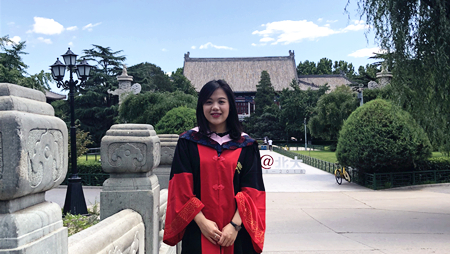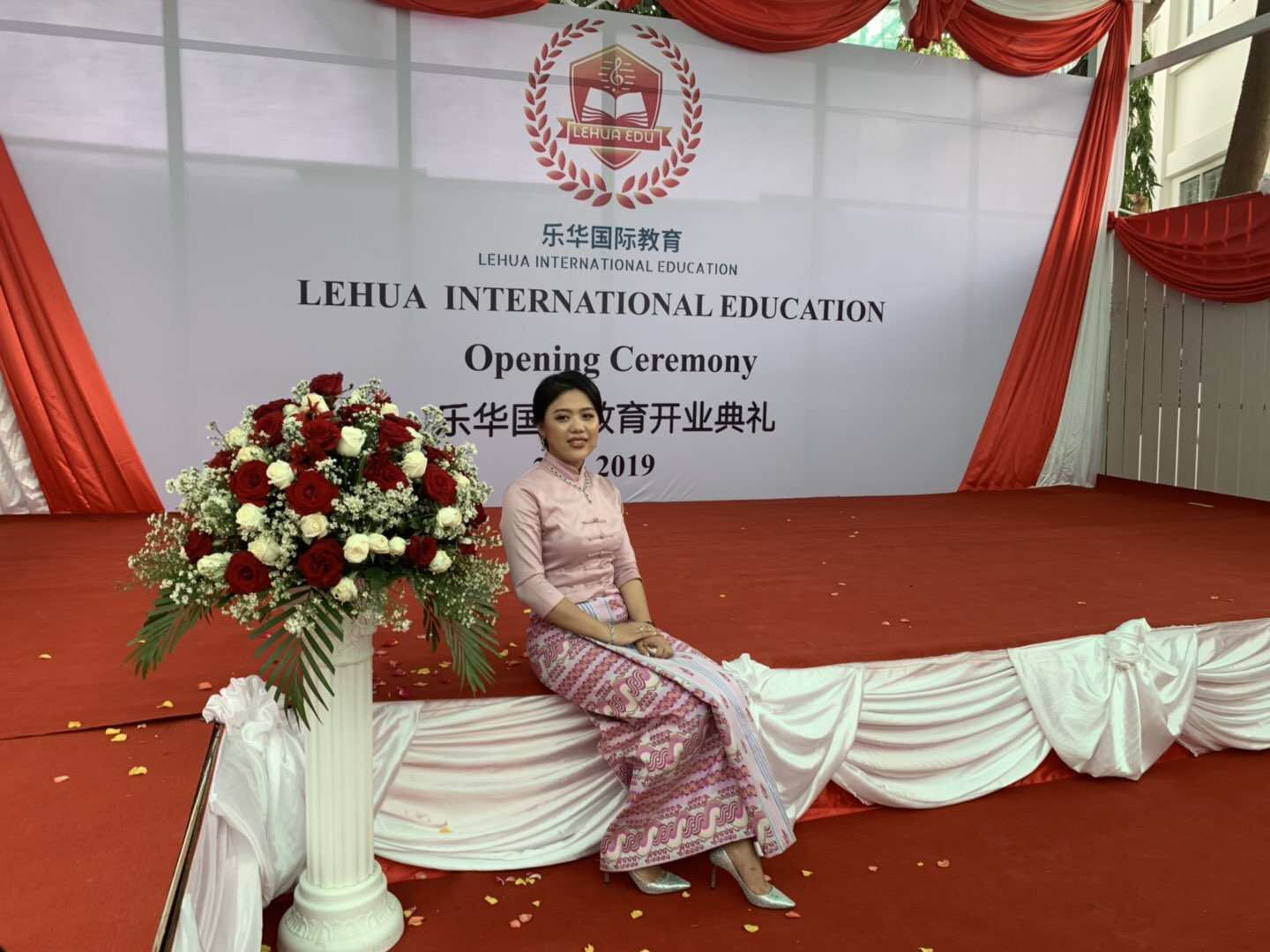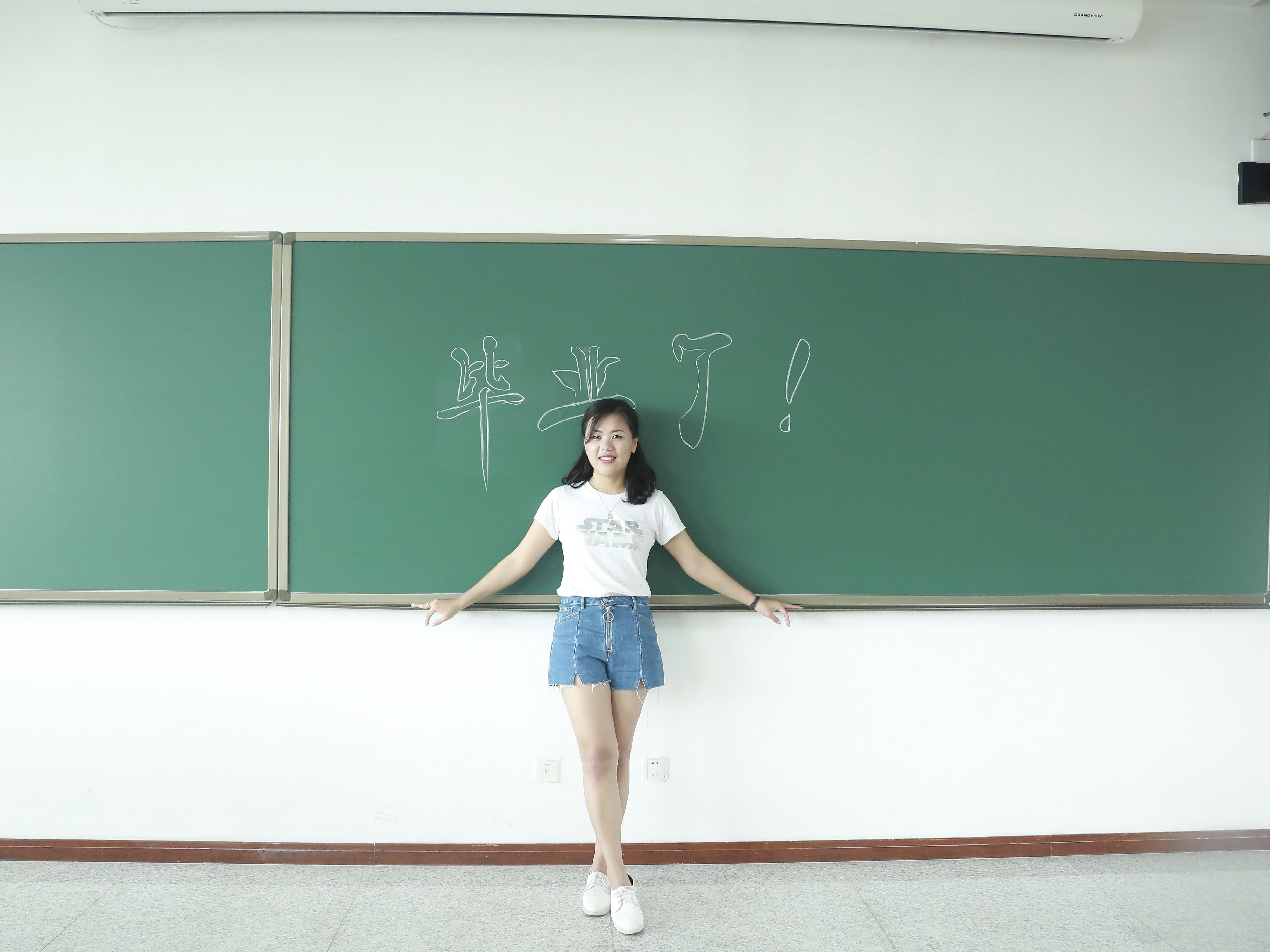Peking University, June 5, 2019: As the graduation day for PKU students draws near, Beida News invited several international alumni to recall their life at Peking University and share their experiences outside the ivory tower.
When Yinyin Win completed her high school study in 2005, the Burmese girl was in a dilemma over the destination of receiving higher education. Back then, Myanmar was still ruled by the conservative military government, and people had little understanding of their neighboring countries owing to the limited sources of information. “Most of the Burmese parents excessively worshipped the western world, so they hoped to send their children there for further study,” said Win, adding that her decision of studying in China triggered harsh criticism from numerous friends and relatives.
Win has long been fascinated with Chinese language since childhood, and she began to study this profound oriental language at 11 by taking relevant courses. Although Win was bombarded with opposition, she insisted on studying in China after learning a bit of this country from a friend who just returned from there. Win spent four years studying at Tsinghua University at undergraduate level, and she was later admitted by Peking University to pursue her Master and Ph.D. degrees in 2009 and 2012 respectively. Under the supervision of Kong Qingdong, a highly esteemed professor with the Department of Chinese Language and Literature, Win’s research area focused on contemporary literature. While she was no stranger to China after staying here for a few years, uncertainties and anxiety never ceased to frustrate this new PKUer.

Win at Peking University
Encountering culture shock
“Isn’t it a common sense?”, a reply that Win occasionally heard when she asked questions from the local peers. “I was totally saddened by their attitudes,” Win recounted, “Being a postgraduate requires intensive reading, and I often came across terms and theories that puzzled me. I thought it was understandable; after all Chinese is not my native language. However, the way my classmates responded significantly discouraged me, and I had no idea how far I could go in the arduous postgraduate journey.”
Apart from the obstacle of talking with students around her, Win also had a hard time grasping instructions from teachers. “When I was asked to write a book report, I took it for granted that it was simply an assignment of extracting key points from the book. As soon as I handed it in, my teacher scolded me for my ‘laziness’ shown in my work and asserted that I didn’t take the assignment seriously. Afterwards, I came to realize that a book report is far more than what I had assumed, and my reflection after reading the book is actually the core of the whole report,” said Win.
A string of setbacks still awaited the Myanmar-born international student, and Win became even more emotional when she was preoccupied with writing essays. “When I submitted my coursework to my supervisor for review, the most common feedback that I received was ‘What do you write? It doesn’t make sense at all; go and rewrite it!’, which was definitely a heavy blow to me,” said Win, who claimed to have considered terminating her study at some point.
Resolving misunderstanding
Fortunately, the International Students Division provided a timely counselling service when Win was overwhelmed by tremendous pressure. Win said, “The Division has become my haven and the teachers are friends of mine now. Whenever I felt depressed at school, I could always relieve myself a little bit after having a heart-to-heart talk with the teachers there.” Win’s experience is not an individual case. Like many other international students, there are ups and downs throughout their learning journey at a university far away from home. Nevertheless, the International Students Division keeps track of their conditions and helps them get through ordeals that are inevitable. Besides, tour groups are regularly organized, enabling international students to explore different parts of China, experience a variety of customs, and more importantly mingle with members of the group who might be friends for life later on. “Over years, I have travelled to a myriad of cities, which is an effective way to relax myself and refresh my mind. The trip to Lijiang and Shangri-La in China’s southwestern Yunnan Province has been most memorable, as I was totally amazed by the breathtaking natural scenery that is hardly seen elsewhere,” Win recalled.
As Win gradually identified cultural differences between China and her home country, she has been aware that the seemingly offensive utterances from her classmates might not be an implication of being looked down upon. “For a long period of time, I assumed that I was scoffed at by others, but soon afterwards I was told that people did not intend to laugh at me; instead, that’s how people talked, in a half-joking manner,” Win explained, “I also learned that top students are brought up by strict teachers, which is an old saying known by the majority of Chinese people. With this in mind, I didn’t blame my supervisor despite the poignant remarks given by him.”
Engaging in education
As one of a few Burmese students at Peking University, Win was offered a part-time position at the Department of Eastern Languages, being responsible for teaching her mother tongue to undergraduates. “Students at Peking University are incredibly smart and assiduous,” Win revealed, “and they have an insatiable thirst for knowledge.” Therefore, it was commonplace to see students raise questions pertaining to different aspects of this southeastern country, and Win sometimes even failed to answer them instantly. Additionally, the students’ passion for Burmese language and culture also prompted Win to bring many books that are exclusively published in Myanmar back to Peking University every time when she returned to school from her hometown after vacation. These invaluable resources form the supplementary material that greatly facilitates teachers and students, and Win even donated all of them spontaneously to Peking University Library after graduation.
For those who were recently or will be enrolled to Peking University, Win offered some suggestions based on her previous experiences. Particularly, Win noted that depression and anxiety are common among newly-admitted international students, so adjusting mental state should be a top priority. “When the sense of belonging is being found, it will be much easier to excel in studies,” Win said. She also encouraged newcomers to participate in a series of events, be it on campus or off campus, thereby extending their social networks and alleviating loneliness. “Moreover, it is always helpful to turn to the International Students Division for assistance in the face of difficulties and count on the teachers there,” Win added.
Win in a classroom
As Win continued to recall her life in China, she increasingly brimmed with the pride and joy of studying at Peking University. Win extolled, “Teachers and students are the most outstanding; views are picturesque; all kinds of information are easily accessible. You name it!” The strengths of Peking University indeed strike a sharp contrast with the universities in Myanmar, and there is a huge gap in terms of education concepts between China and Myanmar. As such, after graduation Win founded Lehua International Education, a training center based in Myanmar’s economic powerhouse Yangon. The school offers a wide range of courses, including Chinese and calligraphy. Upon hearing Win’s background through word of mouth and learning the prestige of Peking University, more and more parents are flocking to Win’s institute, inquiring the necessity of studying abroad.

The opening ceremony of Win's start-up
“Whenever I see someone who is considering sending their kids to China for better education, I immediately recommend Peking University to them,” Win said, “because for those who wish to study Chinese language and literature, I think Peking University is the best in the world.”
Written by: Huang Weijian
Edited by: Zhang Jiang


